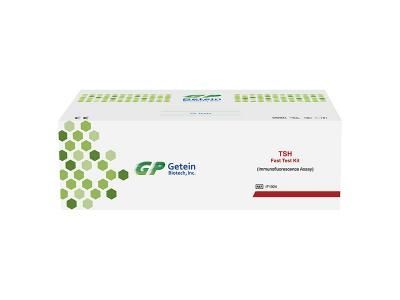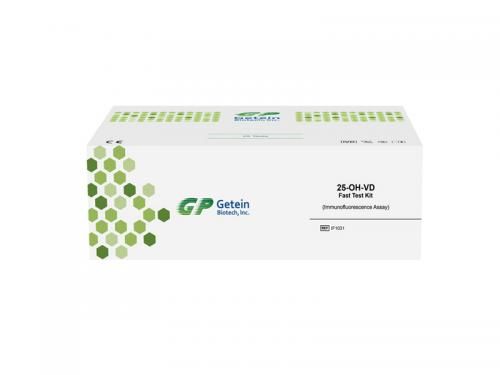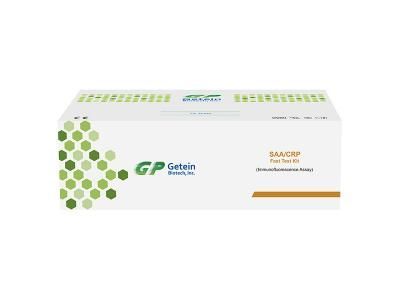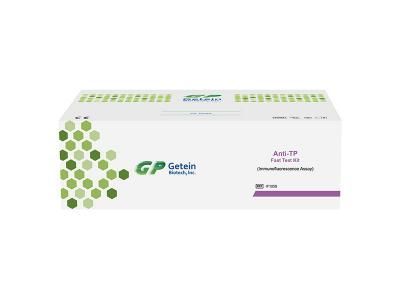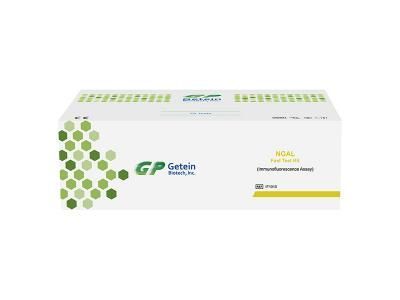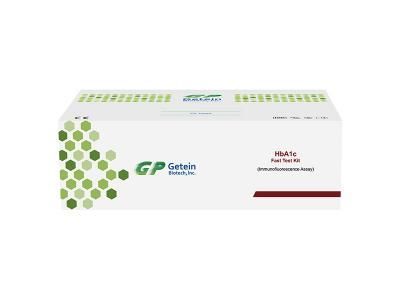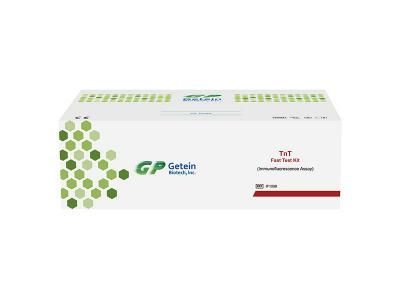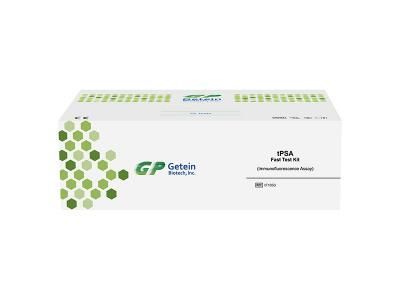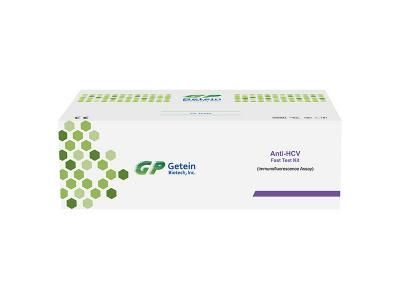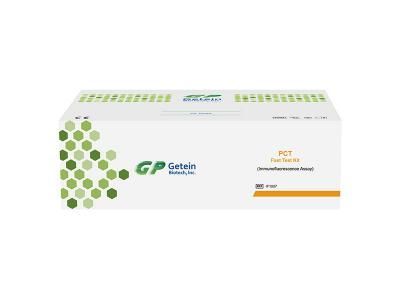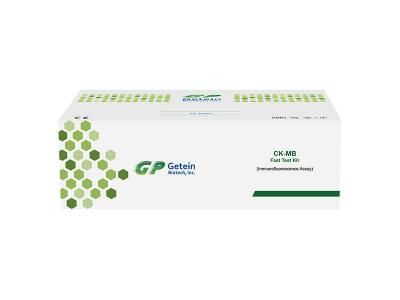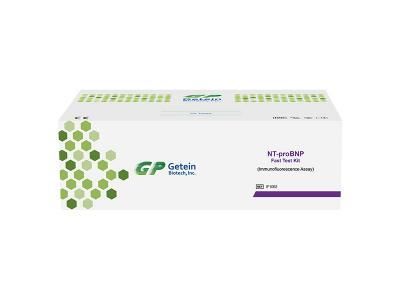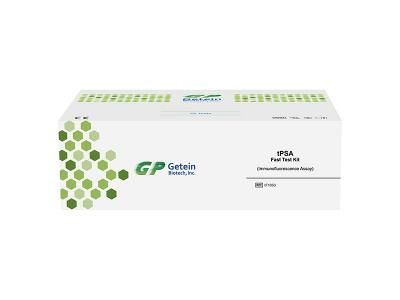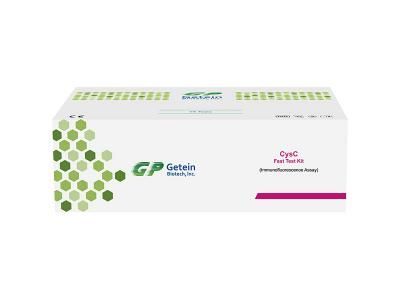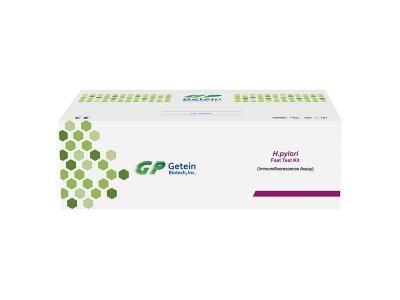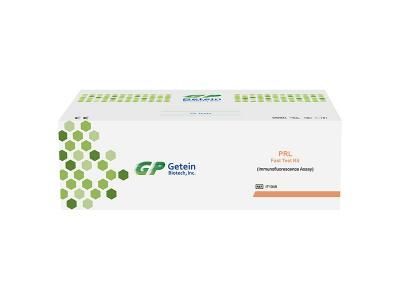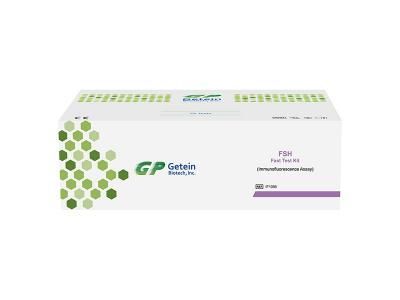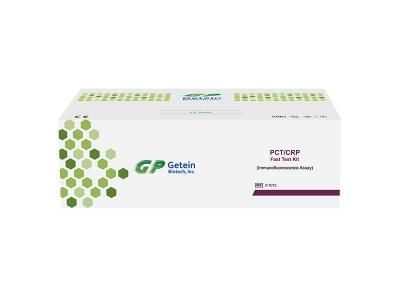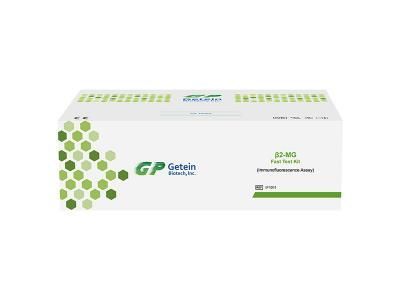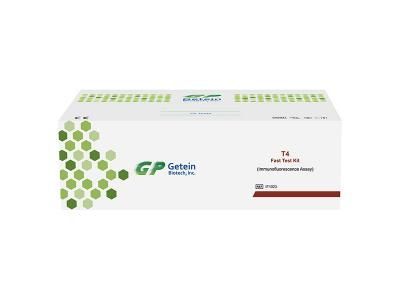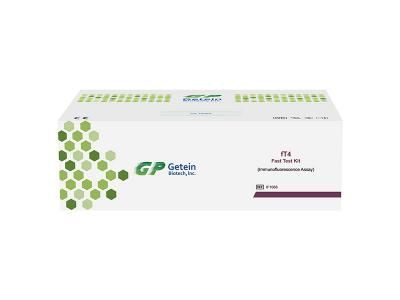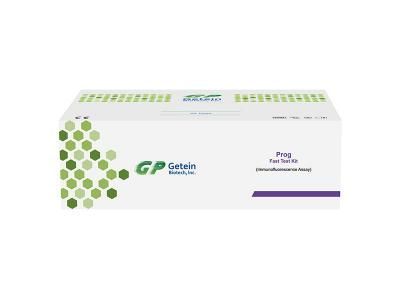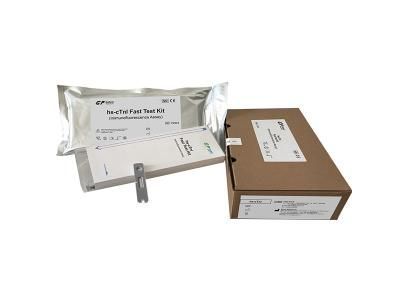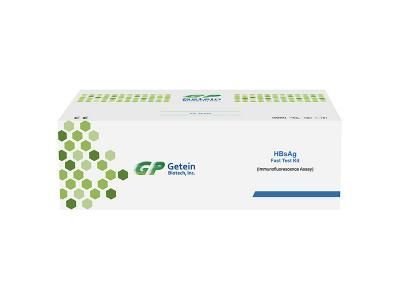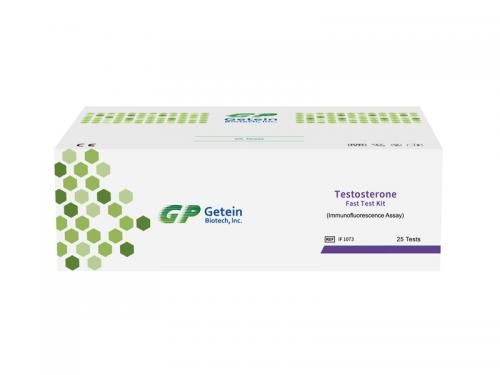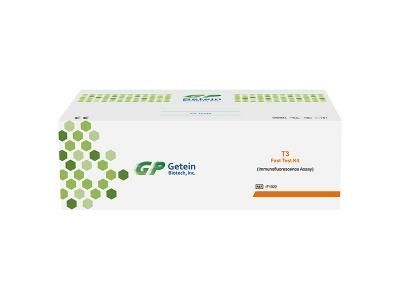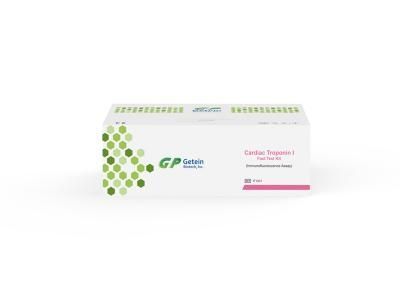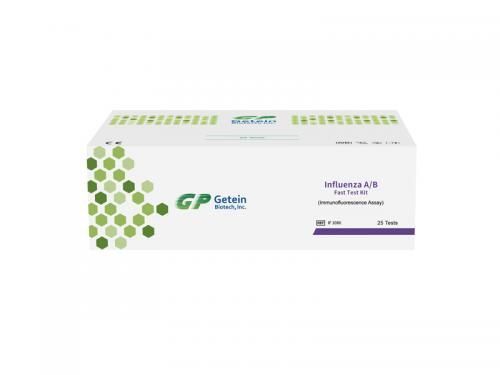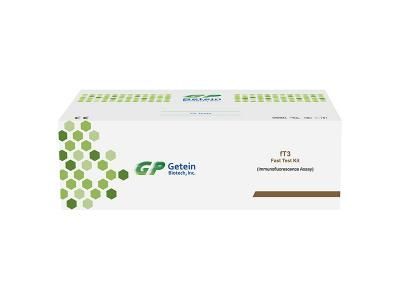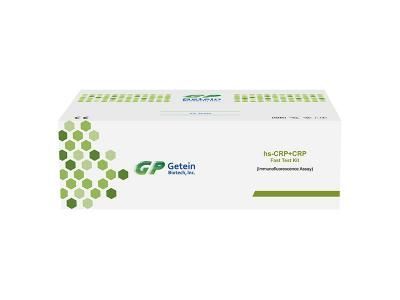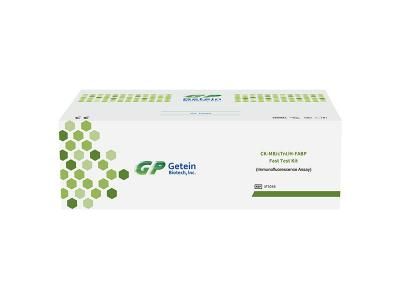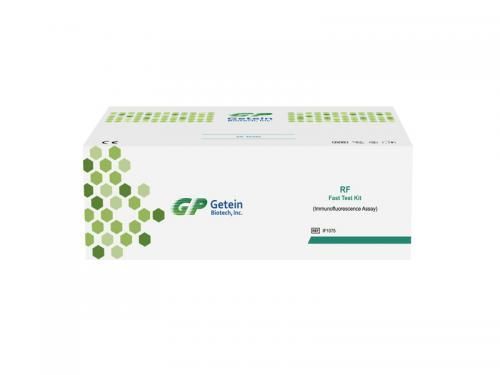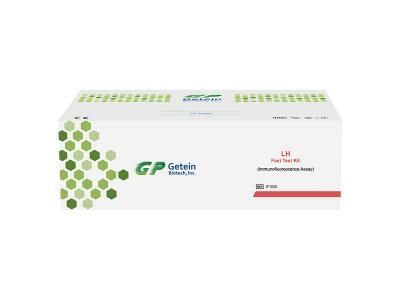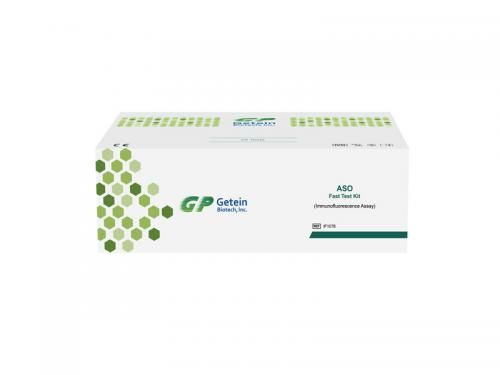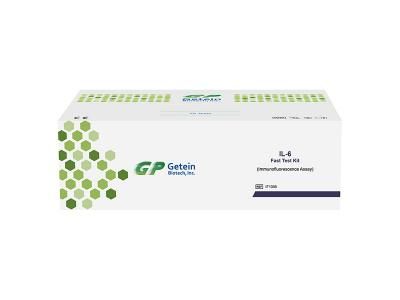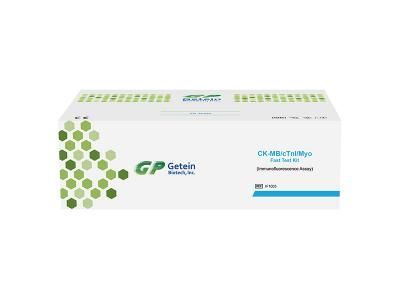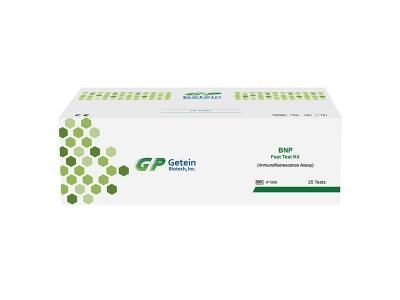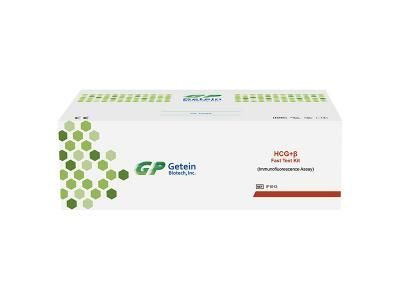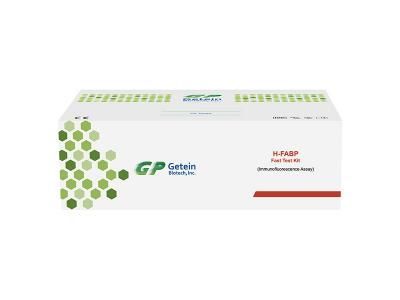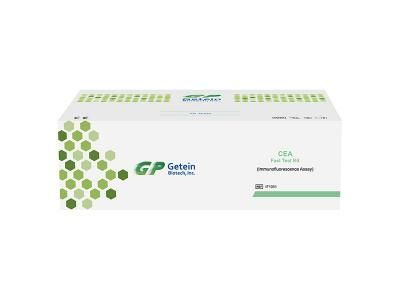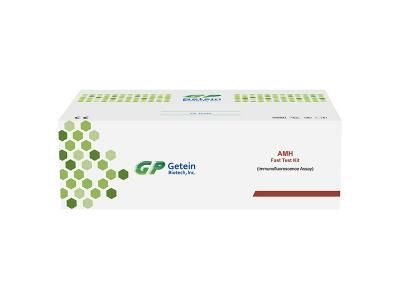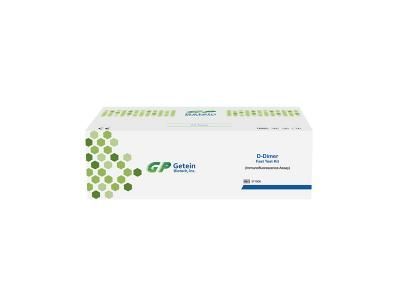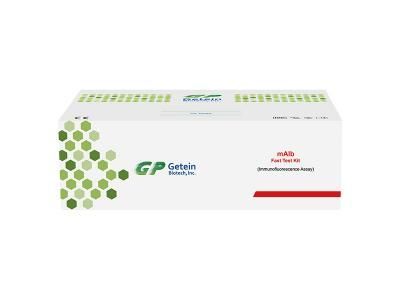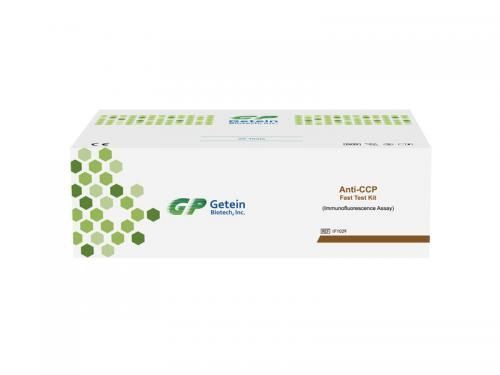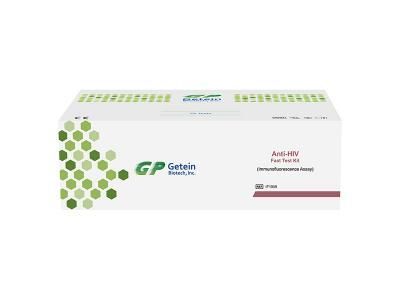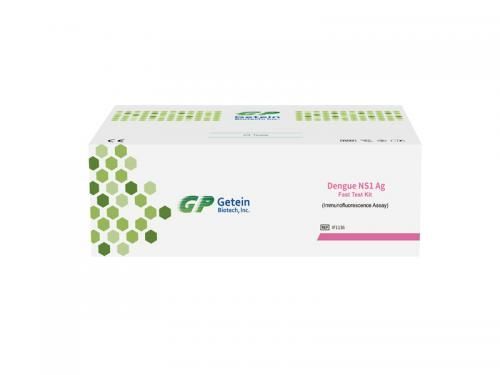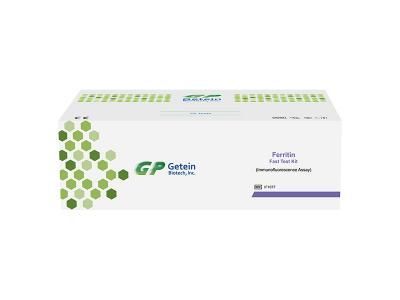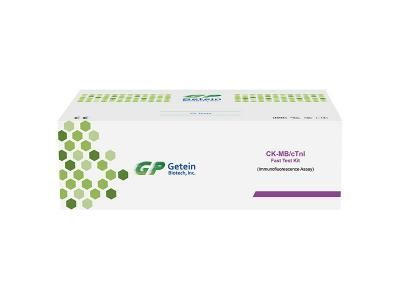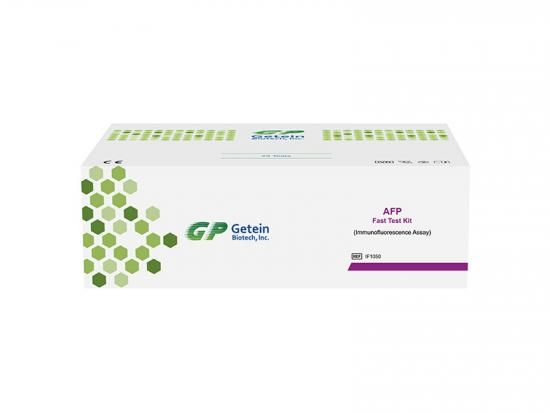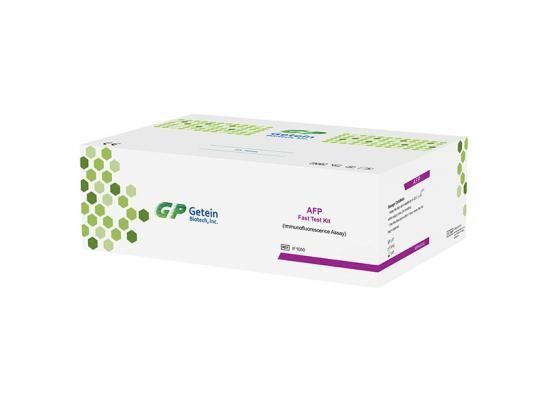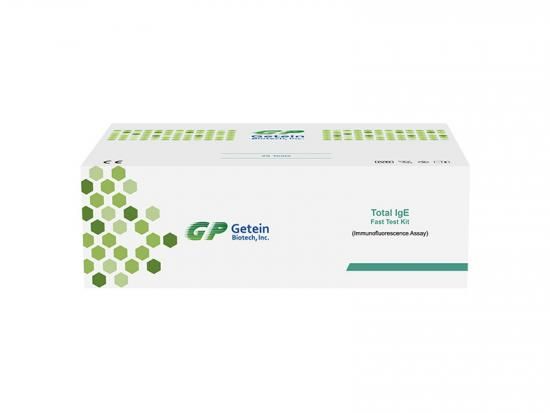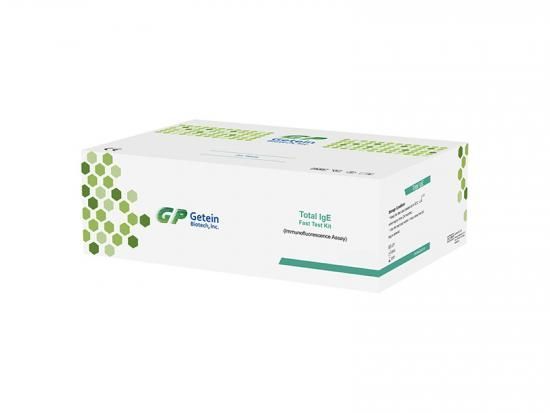Getein TSH Fast Test Kit is used in the screening, clinical diagnosis, prognosis and therapeutic effect evaluation of thyroid diseases.
Intended Use
The TSH Fast Test Kit (Immunofluorescence Assay) is intended for in vitro quantitative determination of thyroid-stimulating hormone (TSH) in human serum and plasma samples.
About TSH
TSH is the main regulator of thyroid cell growth, as well as thyroid hormone synthesis and secretion. TSH (MW 30 kDa) is synthesized and secreted by TSH cells in the pituitary gland, and its secretion is regulated by a negative feedback mechanism. When thyroid function changes, TSH levels fluctuate faster and more significantly than thyroid hormones, making it a sensitive biomarker for evaluating hypothalamic-pituitary-thyroid function.
Contents
For Getein 1100/Getein 1180
Package specifications: 25 tests/box, 10 tests/box
TSH test card in a sealed pouch with desiccant
Disposable pipette
User manual: 1 piece/box
SD card: 1 piece/box
For Getein 1600
Package specifications: 2×24 tests/box, 2×48 tests/box
Sealed cartridge with 24/48 Getein TSH test cards
User manual: 1 piece/box
Materials required for Getein 1600:
- Sample diluent: 1 bottle/box
- Box with pipette tips: 96 tips/box
- Mixing plate: 1 piece/box
Note: Do not mix or interchange different batches of kits.
Specifications
Test Item:
TSH
Sample:
Serum, Plasma
Method:
Immunofluorescence Assay
Storage Condition:
4-30℃
Detection Range:
0.10 µIU/mL~50.00 µIU/mL
Test Time:
15 min
Cut-off Value:
0.27 µIU/mL~4.20 µIU/mL
Shelf Life:
24 months
Applicable Devices
- Getein 1100 Immunofluorescence Quantitative Analyzer
- Getein 1180 Immunofluorescence Quantitative Analyzer
- Getein 1600 Immunofluorescence Quantitative Analyzer
Clinical Applications
- Aid in the screening, clinical diagnosis, prognosis, and evaluation of therapeutic effects for thyroid diseases.
- Aid in the diagnosis of primary hyperthyroidism and primary hypothyroidism.
- First-line strategy for diagnosing abnormal thyroid function.
- Screening newborns for hypothyroidism.
- Monitoring TSH levels during pregnancy.

